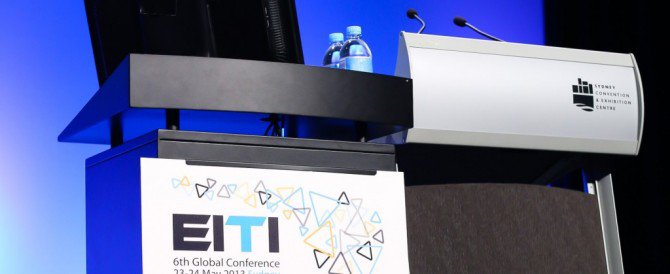Click here to view interactive map showing who is buying up Myanmar’s oil and gas
These are testing times for the Extractive Industries Transparency Initiative (EITI), the voluntary scheme which brings together governments, civil society and companies in efforts to make sure citizens see the benefits of the riches beneath their feet.
For years, the EITI has been dogged by claims that it lacks the teeth to deliver real accountability. But last year seemed to mark a breakthrough moment – new rules came in encouraging companies to reveal their real owners and to publish terms of their contracts with governments. EITI also agreed that payments by companies would be published in enough detail for citizens to follow the money from each extractive project into government coffers.
The theory was that this would beef up the scheme’s ability to help citizens track resource revenues and hold companies and governments accountable.
That theory is about to be put to the test. This week, as the international board gathers in Mexico, it is considering the participation of two countries which show exactly why schemes like the EITI are needed, and why its principles should be enshrined in law – the Democratic Republic of Congo (DRC) and Myanmar.

The DRC is chock full of the resources that feed consumption in the rich world, but it’s still one of the poorest countries on earth. Its repeated failure to meet the EITI’s reporting standards led to its suspension from the scheme in April 2013. At today’s meeting the board will assess whether the DRC is now compliant and whether the lessons of the past have been learnt.
Those lessons are stark – take the $1.36 billion which the Congolese state is estimated to have lost in five mining deals that handed some of the country’s crown jewels to offshore firms with hidden ownership.[1] The EITI board should insist not just that DRC meets minimum standards but that it addresses the governance failures raised by this secret sales scandal as a condition for remaining part of the initiative. The board should also look at ways it can support the DRC to include EITI requirements and recommendations, like transparency of ultimate owners, in forthcoming laws on minerals and oil extraction.
Then there is Myanmar, which has recently applied to join the EITI. During half a century of military rule, secrecy and corruption deprived its people of the benefits of their country’s oil, gas and mineral riches. The current government has promised more transparency, and there is much talk of ‘responsible investment’, which is potentially great news for Myanmar’s people – if the money reaches them. But Global Witness’ latest piece of work has revealed a disturbing counter narrative to the reform agenda.
Last week, we took a look at the country’s oil and gas sector, and asked the companies who have got licences in the past year who their real, or ‘beneficial’ owners are. We asked this question because years of investigating corruption have repeatedly shown that when corrupt politicians and unscrupulous businesses want to hide what they are up to, they use anonymous companies.
What we found was worrying – just 13 companies responded, and only two private companies gave us the full information we requested. Which raises some pretty serious and urgent questions over whether the financial windfall from the oil and gas – which could be huge – will reach the population or disappear into the pockets of the elites who have profited so handsomely in the past.
Meanwhile new laws on mining, petroleum and precious stones are in the works. But there is little so far to suggest that lawmakers will build these around EITI’s principles of disclosure. EITI should actively encourage them to do so.
There can be fewer better examples of the damage done by the resource curse than DRC and Myanmar. If it is to deliver real change in either country EITI needs to take its new rules out for a spin. That means informing citizens in DRC and Myanmar not just what payments are being made but also who companies’ real owners are and what kind of deals they have struck.
Brendan O’Donnell leads the Global Witness Oil, Gas and Mining team. Follow him on Twitter at @brenodon